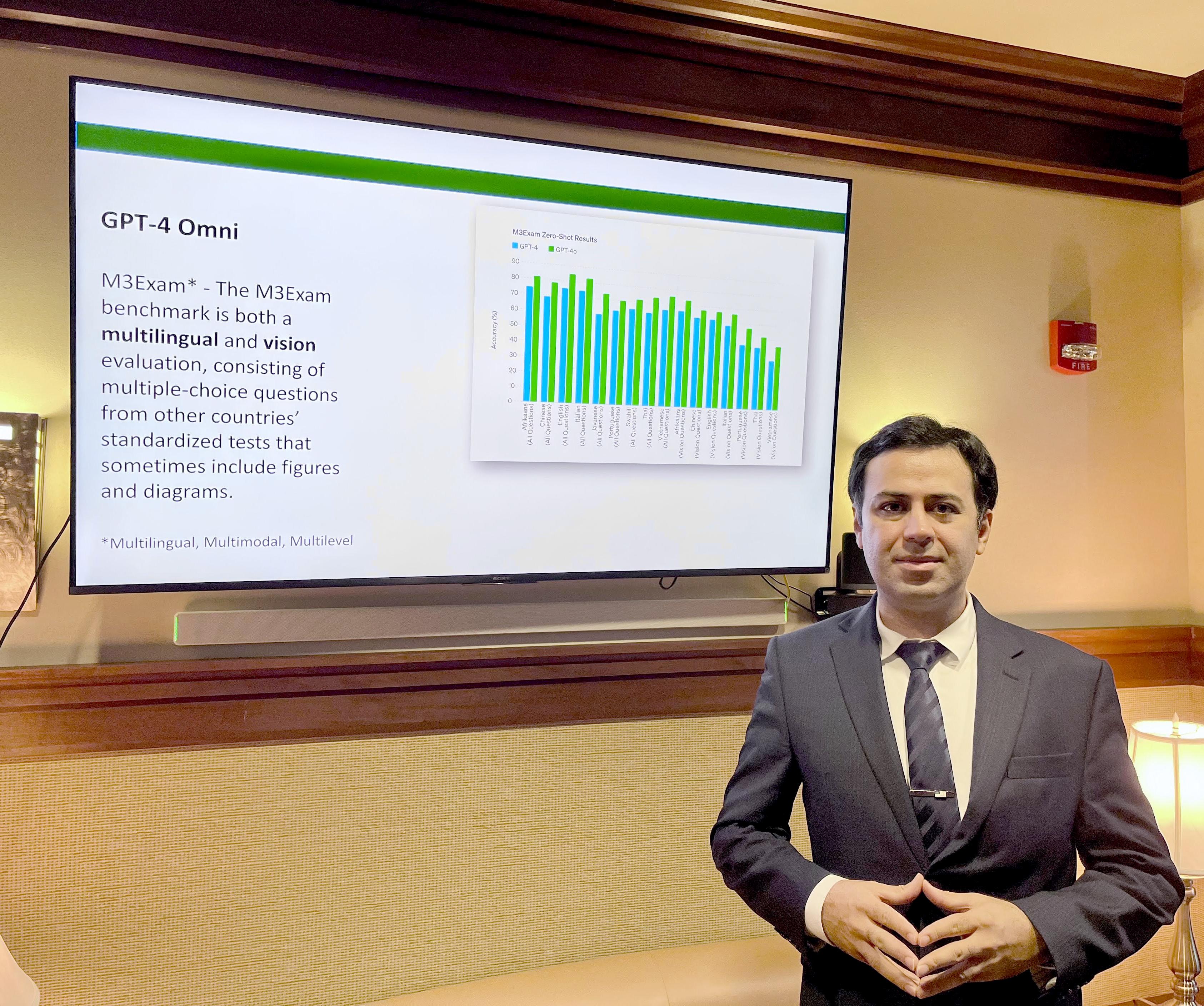Establishing forward-thinking coursework and research led to SUNY Oswego’s Mohammad Tajvarpour being named one of 20 members in the inaugural class of SUNY’s AI for the Public Good Fellows.
SUNY Chancellor John B. King Jr. announced the inaugural class in September, featuring faculty and staff fellows who are experts in their fields of study – ranging from health sciences to sustainable resources management to English.
“This one is very new. It’s based on SUNY’s strategy to incorporate AI into the curriculum,” said Tajvarpour, who teaches in SUNY Oswego’s College of Business and Entrepreneurship and noted that participants were chosen from a very competitive pool of applicants.
The AI for the Public Good Fellows will be a resource to SUNY’s colleges and universities by providing targeted support for faculty and staff working to update courses and learning activities to incorporate AI literacy, including the effective and ethical use of AI and teaching students to critically evaluate AI-generated content.
“The main goal is to create programs and guide the way faculty and students are using AI, but in an ethical way, and benefiting from the good things that come with AI,” he noted. “They wanted people with experience with AI, working with data and publishing in the field.”
Tajvarpour is an established pioneer in teaching in this area, first teaching a “ChatGPT for Business” course in summer 2023 that looked at the potential, promise and possible pitfalls of incorporating the AI platform into a range of business operations.
The course is now a part of Oswego’s highly ranked master of business administration (MBA) graduate curriculum, although Tajvarpour noted it is being expanded into “Generative AI for Business.”
“People from many different MBA backgrounds have taken the course and told me they found it very applicable,” Tajvarpour said.
He is also working on a prompt engineering class, aiming for a summer 2026 launch, as well as coursework relating to AI governance, or how to incorporate AI into high-level activities.
“We’re hoping to have a concentration on generative AI within our MBA program,” Tajvarpour said.
Using AI responsibly
The first round of fellows will travel between different SUNY campuses and work with cohorts on the incorporation of AI, but with a focus on how to do so ethically.
“One of the goals of the fellowship program is to go to other campuses and help them develop resources, curriculum, guidelines and discussions on how to use AI in a responsible manner,” Tajvarpour said.
“Any course that is developed around Generative AI should start with ethics,” he said. “We’re automating all the tasks, or most of them, but if there’s any inherent bias in the system, it will create a bias in our system. We need to be aware of those biases. There can be a bias in how we ask questions, and some answers may be hallucinations, may include bias or may be outdated.”
Privacy and the use of personal data in AI is another concern the fellows want to address. People are putting a lot of information into the system, often used for training purposes, but others can hack the system or send the right prompt to receive that data, Tajvarpour said.
Tajvarpour especially looks forward to the connections and development of resources that will ultimately support faculty, students and society in general. Some of those currently exist –- like a module on ethics in AI he developed for his class –- but others can be constructed collaboratively by fellows working with campus contacts.
“The main goal for this program is to raise awareness and to create resources,” Tajvarpour said. “To help people know how they can use AI among SUNY institutions is a goal, but it’s important to me that we create valuable and helpful resources. For me, the development part would be working with other faculty using AI, and that we can learn from each other.”
AI for Public Good program
The SUNY AI for the Public Good Fellows Program is envisioned as providing support for the SUNY General Education Framework and other matters of curriculum and pedagogy related to AI literacy.
“As artificial intelligence and other emerging technologies are further ingrained in everything we do, SUNY is making sure every student has this essential core competency within our excellent academic curriculum,” SUNY Chancellor King said. “We are all bombarded with information from all directions, with varying degrees of authenticity, and SUNY will equip every student with the skills to recognize what is true, and how to ethically use AI in their studies and in the world.”
SUNY updated its general education requirements for undergraduates to incorporate the skills to ethically use artificial intelligence into the existing information literacy core competency. This update –- along with a new general education core competency in civil discourse –- will be implemented by fall 2026.
The fellows will assist SUNY faculty and staff preparing for the fall 2026 implementation of the AI-focused updates to the information literacy core competency in the framework, provide consultations to campuses on AI literacy and take part in the planning for the SUNY General Education conference.




